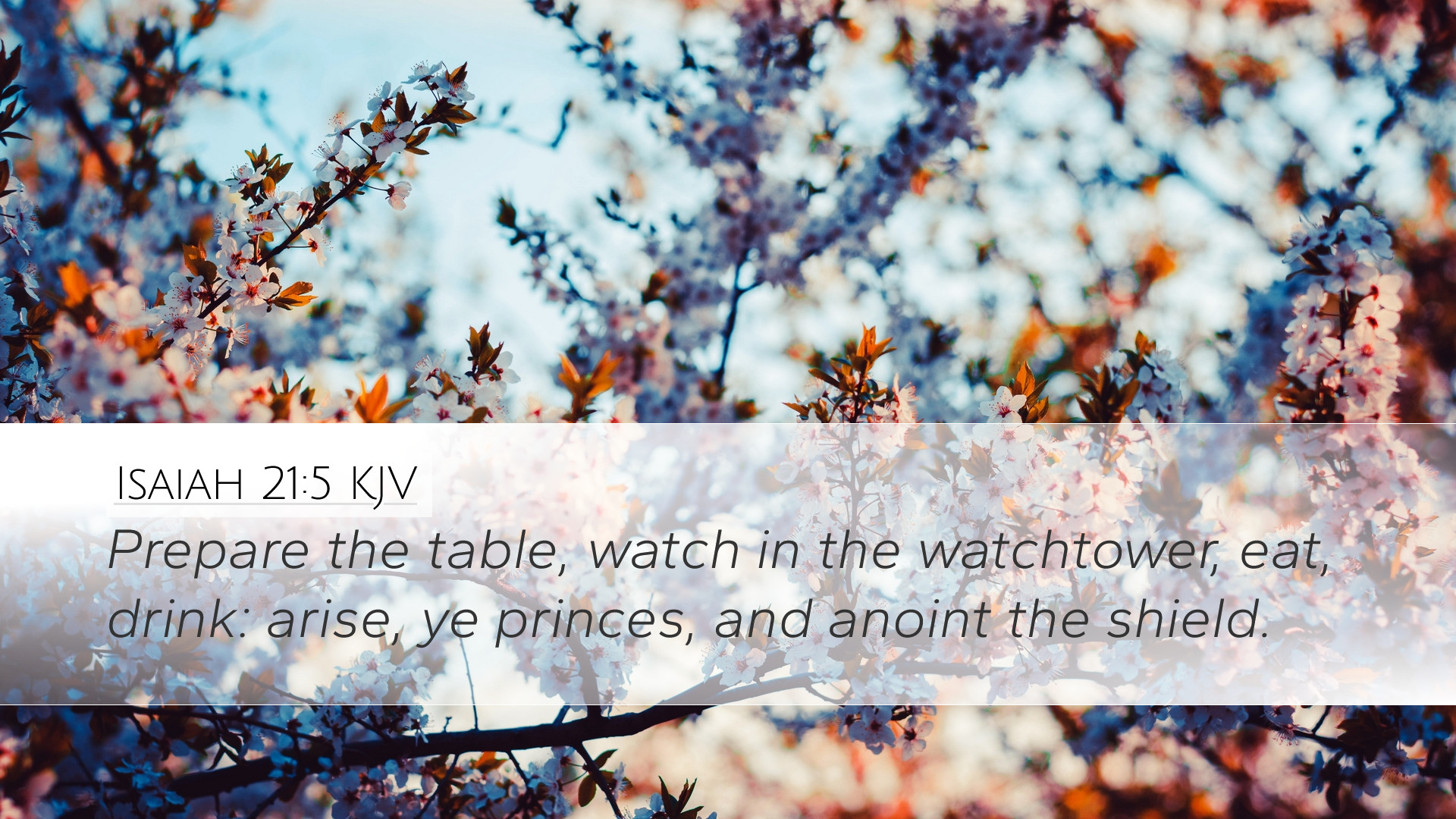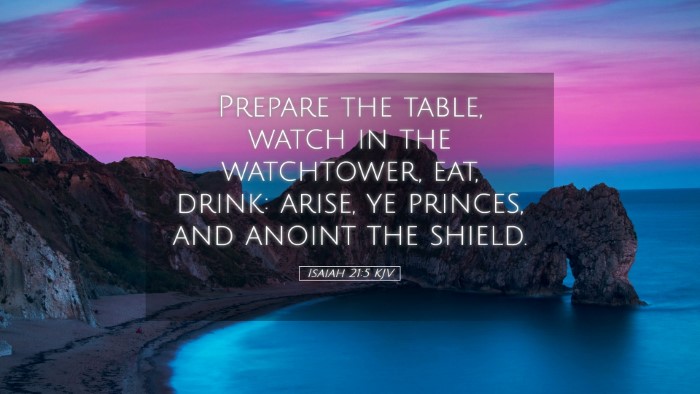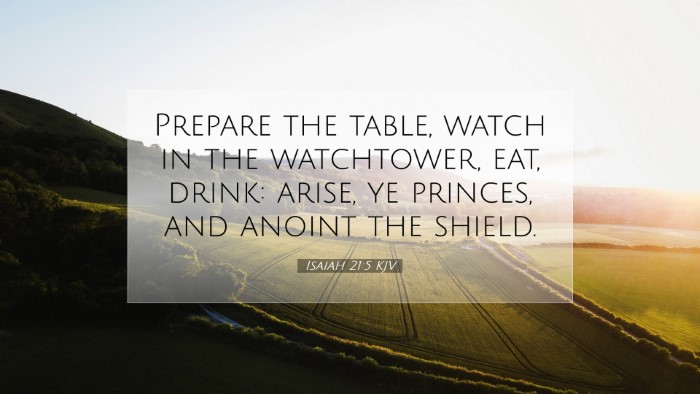Commentary on Isaiah 21:5
Verse: "Prepare the table, watch in the watchtower, eat, drink: arise, ye princes, and anoint the shield."
Introduction
The prophetic pronouncements in the book of Isaiah carry profound implications for Israel and the surrounding nations. Specifically, Isaiah 21:5 serves as a poignant declaration concerning vigilance in the face of impending challenge. This commentary draws from various public domain sources, offering a synthesis of insights from Matthew Henry, Albert Barnes, and Adam Clarke.
Contextual Background
This chapter is situated within a series of oracles concerning Babylon. Here, Isaiah speaks to watchers on the walls of the city, urging them to be alert as the fate of Babylon unfolds.
Historical Setting
Babylon, a dominant force during Isaiah’s time, was known for its grandeur and military might. However, the prophecy underscores an impending judgment that God will execute upon this great city.
Exegesis of the Verse
Each component of Isaiah 21:5 exposes layers of meaning significant to the intended audience, particularly regarding their spiritual and practical readiness.
“Prepare the table”
Matthew Henry notes that this call signifies readiness for a significant occasion, which may encompass both divine judgment and a preparation for the feast of judgment against Babylon. The table may also symbolize a place of communion and confrontation.
“Watch in the watchtower”
Albert Barnes emphasizes the critical role of vigilance. The watchtower represents spiritual oversight and the necessity for believers to be attentive to the signs of times. Watching denotes a posture of alertness against deception and danger, especially in the prophetic sense of awaiting fulfillment of God's word.
“Eat, drink”
This phrase can be interpreted as a call to sustain oneself amidst chaos. Adam Clarke suggests that there is an ironic element; while there is a need for sustenance, it reflects an expression of confidence in God's sovereignty, even as judgment approaches.
“Arise, ye princes, and anoint the shield”
The command to “arise” indicates a call to action. Matthew Henry elaborates that the “princes” are leaders who must take responsibility in preparing for what is to come. The act of anointing the shield symbolizes preparation for battle, emphasizing the seriousness of the conflict ahead.
Theological Insights
The implications of this verse extend beyond the immediate historical context into the theological realm.
Divine Sovereignty
This passage reinforces the theme of God's control over nations. Albert Barnes affirms that even as Babylon appears strong, it is ultimately under God's authority, serving as a warning to any who would oppose the divine will.
Vigilance and Readiness
The exhortation to “watch” becomes a timeless principle for believers. Adam Clarke reflects on the Christian call to be vigilant in faith, drawing parallels to the New Testament where believers are instructed to remain alert for the second coming of Christ.
Leadership Responsibility
The mention of “princes” indicates that leadership carries a weighty responsibility. Matthew Henry argues that leaders are called to act decisively, preparing their communities for the challenges that lie ahead.
Practical Applications
Several practical applications emerge from this verse, relevant to contemporary scholars, pastors, and leaders.
- Spiritual Readiness: Just as the watchmen are called to remain alert, modern believers are urged to cultivate a lifestyle of prayer and readiness.
- Understanding Judgment: Recognizing that God's judgment can fall on nations and individuals serves as a sobering reminder of the necessity for repentance and righteousness.
- Leadership and Accountability: Leaders today are challenged to prepare effectively for spiritual battles and to uphold their responsibilities faithfully.
- Cultivating Community: The call to “eat” reflects the importance of community among believers, especially when navigating difficult times together.
Conclusion
Isaiah 21:5 encapsulates an essential warning and a call to preparedness amidst impending challenges. Through the insights gained from the commentaries of Henry, Barnes, and Clarke, believers are encouraged to remain vigilant, spiritually prepared, and responsible in leadership, always recognizing the sovereignty of God over worldly affairs.


